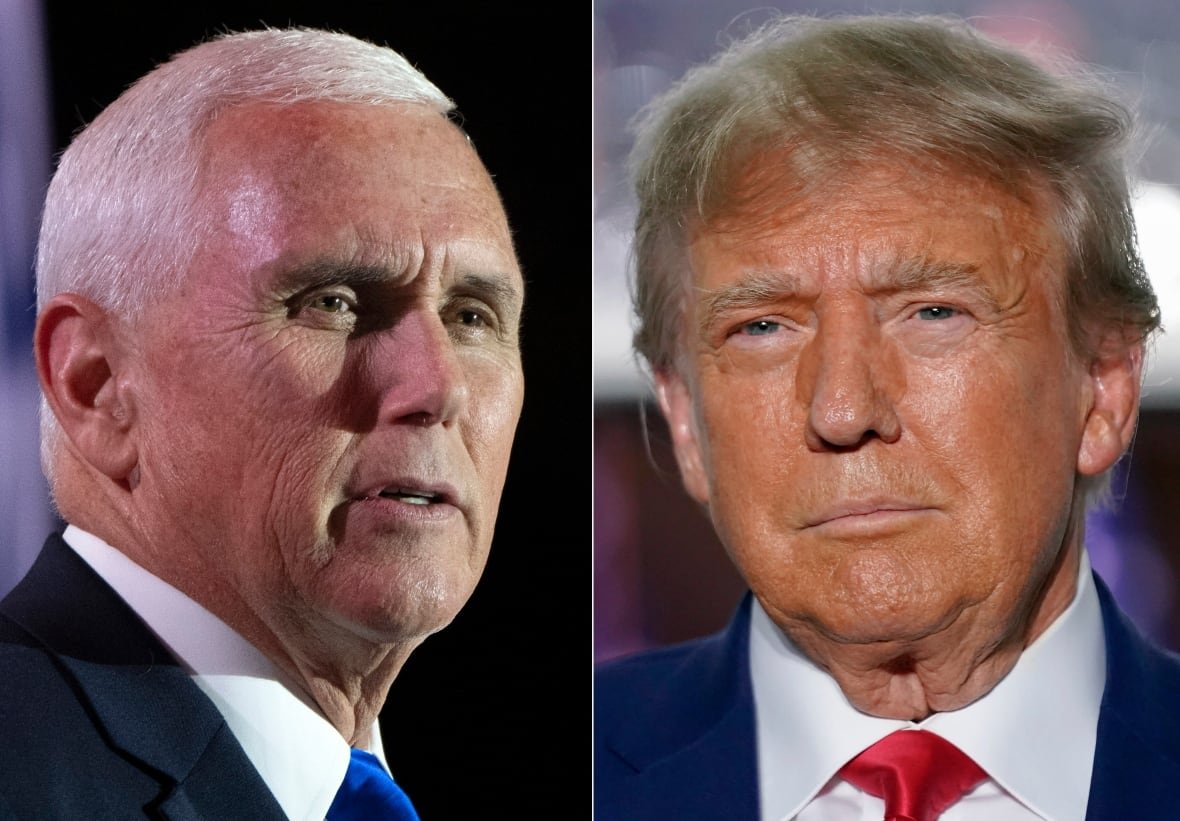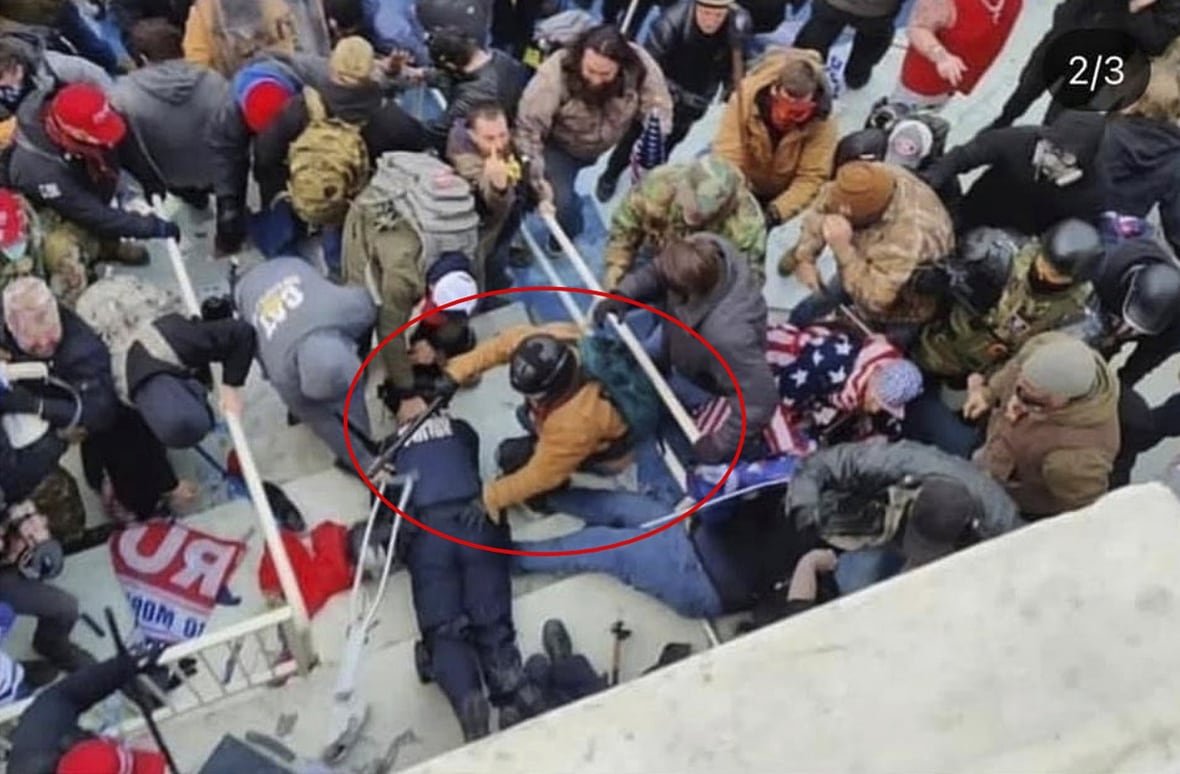Donald Trump engaged in an “unprecedented criminal effort” to “unlawfully retain power” after losing the 2020 election, Jack Smith said in a report published early Tuesday by the U.S. Justice Department, with the special counsel expressing confidence in the prospects for a conviction at a trial that will not happen now that Trump is returning to the White House.
The report details the special counsel’s decision to bring a four-count indictment against Trump, accusing him of plotting to obstruct the collection and certification of votes following his 2020 defeat by Democratic President Joe Biden.
It concludes that the evidence would have been “sufficient to obtain and sustain a conviction” at trial, but his election win on Nov. 5 effectively ended the case. Previous Justice Department guidance has advised against indicting a sitting president, and Trump would have undoubtedly moved to shutter the probes after his Jan. 20 return to office.
Smith’s report asserted that Trump’s claims of voter fraud — whether it was unfounded allegations of non-citizen voting or voting machine manipulation — were “demonstrably and, in many cases, obviously false.”
“Trump used these lies,” Smith writes, “as a weapon to defeat a federal government function foundational to the United States’ democratic process.”

Trump’s own vice-president and other high-ranking administration officials, as well as state officials closest to the administration of the election, rebutted his claims of fraud both in public and private.
“Mr. Trump’s false claims were repeatedly debunked, often directly to him by the very people best positioned to ascertain their truth,” Smith wrote.
Trump’s former attorney general William Barr has previously said he told the president at the time there was no widespread fraud in the election, and a cybersecurity division in Trump’s administration reached the same conclusion. This came before a mob of his supporters tried to stop Congress from certifying the election on Jan. 6, 2021, resulting in violence at the Capitol.
Decision to forego Insurrection Act charge explained
Much of the evidence cited in the report has been previously made public.
But it includes some new details, such as that prosecutors considered charging Trump with inciting that attack on the U.S. Capitol under a U.S. law known as the Insurrection Act.
Prosecutors ultimately concluded that such a charge posed legal risks and there was insufficient evidence that Trump intended for the “full scope” of violence during the riot.
“The office did not find any case in which a criminal defendant was charged with insurrection for acting within the government to maintain power, as opposed to overthrowing it or thwarting it from the outside,” said Smith.

The indictment charged Trump with conspiring to obstruct the election certification, defraud the United States of accurate election results and deprive U.S. voters of their voting rights.
Smith’s office determined that charges may have been justified against some co-conspirators accused of helping Trump carry out the plan, but the report said prosecutors reached no final conclusions.
Several of Trump’s former lawyers had previously been identified as co-conspirators referenced in the indictment.
Prosecutors gave a detailed view of their case against Trump in previous court filings. A congressional panel in 2022 published its own 700-page account of Trump’s actions following the 2020 election.
Both investigations concluded that Trump spread false claims of widespread voter fraud following the 2020 election and pressured state lawmakers not to certify the vote, and ultimately, also sought to use fraudulent groups of electors pledged to vote for Trump in states actually won by Biden, in a bid to stop Congress from certifying Biden’s win.
The effort culminated in the Jan. 6, 2021 attack on the U.S. Capitol, when a mob of Trump supporters stormed Congress in a failed attempt to stop lawmakers from certifying the vote.
Smith’s report noted that the Trump pressure campaign was selective.
“Significantly, he made election claims only to state legislators and executives who shared his political affiliation and were his political supporters, and only in states that he had lost,” he wrote.
Smith’s case faced legal hurdles even before Trump’s election win. It was paused for months while Trump pressed his claim that he could not be prosecuted for official actions taken as president.
The Supreme Court’s conservative majority largely sided with him, granting former presidents broad immunity from criminal prosecution.
“Before this case, no court had ever found that presidents are immune from criminal responsibility for their official acts, and no text in the Constitution explicitly confers such criminal immunity on the president,” wrote Smith.
“The [special Counsel] office proceeded from the same premise,” he said.
After the release, Trump, in a post on his Truth Social site, called Smith a “lamebrain prosecutor who was unable to get his case tried before the election.”
In a letter to Attorney General Merrick Garland made public by the U.S. Justice Department, Trump’s lawyers called the report a “politically-motivated attack” and said releasing it ahead of Trump’s return to the White House would harm the presidential transition.
Read the special counsel report:
Report into documents on hold
A second section of the report details Smith’s case accusing Trump of illegally retaining sensitive national security documents after leaving the White House in 2021, which also led to a criminal indictment.
Smith was appointed by Garland to investigate both matters in November 2022 — the same month Trump announced his plans to contest the 2024 election.
The Justice Department has committed not to make that portion public while legal proceedings continue against two Trump associates charged in the case, Walt Nauta and Carlos De Oliveira.
The charges against Trump himself were dropped in a ruling by U.S. District Judge Aileen Cannon, which Smith’s team planned to appeal prior to Trump’s election win on Nov. 5.
Cannon has ordered the Justice Department for now to halt plans to allow certain senior members of Congress to privately review the documents section of the report.
Smith, who resigned last week and has faced relentless criticism from Trump, also defended his investigation and the prosecutors who worked on it.
U.S. president-elect Donald Trump will not have to serve a prison sentence or pay fines but will be the first U.S. president with a criminal record when he takes office later this month after a judge granted him an unconditional discharge in his hush-money trial.
“The claim from Mr. Trump that my decisions as a prosecutor were influenced or directed by the Biden administration or other political actors is, in a word, laughable,” Smith wrote in a letter detailing his report.
Trump was convicted in a New York state case on 34 felony counts involving a scheme to falsify business records in connection with hush money payments to a porn actress, but a judge last week spared him fines or a prison term. The conviction will still assure that Trump will become the first president to take office with a felony conviction on his record.
A Georgia district attorney obtained an indictment for Trump and several associates including former White House chief of staff Mark Meadows with respect to election interference in that state. But the case got bogged down in appeals and hearings over Fulton County Fani Willis’s administration of the case, and she is currently appealing her removal from the case by a state body.




